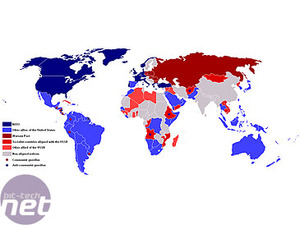Foreword, by Wil Harris
This article is not about politics. Regardless of your views on the wars in Iraq and Afghanistan, that the internet has changed the reporting and public perception of those conflicts is indisputable. This article looks at how technology is changing our view of the battlefield for better or for worse, and is not attempting to make any judgement on the rights or wrongs of the actions involved. Thanks for your understanding, and I hope you enjoy this thoroughly interesting piece.Front page image of soldier with video camera courtesy of UC Berkeley.
Part 1 - A Thoroughly Modern Conflict
In this day and age, where nobody questions the wisdom of declaring war on a state of mind, where democracy is delivered from the belly of a B-52 and where a place in heaven is freely available to anybody willing to detonate himself in a public place, one might be forgiven for thinking that war, more so than usual, has gone mad. We are living in an era where war has become not a clash of governments resolved by soldiers in battle but where the combat zone is anywhere, and the soldiers could be anyone.Of course, it’s preposterous to think that the notions of hearts and minds, propaganda and a war of ideologies are anything new. Rubbishing ones enemies and praising the heroics of allies has always been par for the course, and lying about wars through whatever medium is available is as old as war itself. From the Romans writing off the rest of the world as barbarians, to the Cold War - with both sides telling anybody who would listen that the other side was evil incarnate and intent on nuking the whole planet. We’re seeing the same game being played today as it ever was but now, thanks to modern technology and the Internet, the rules have changed.


The Romans, the Russians and the Americans are well known for their propaganda.
What does this mean for us as, for the most part, mute witnesses to all this? Well first of it means that your modern day Wilfred Owen doesn’t have to be a dab hand at poetry to convey the horror of war to the folks back home - a digital camera and a YouTube account will take care of that. For the first time we, as the web-wise public, have front row seats to the pride, pomp and circumstance of war in all its Technicolour glory.


Is Wilfred Owen comparable to YouTube?

MSI MPG Velox 100R Chassis Review
October 14 2021 | 15:04







Want to comment? Please log in.